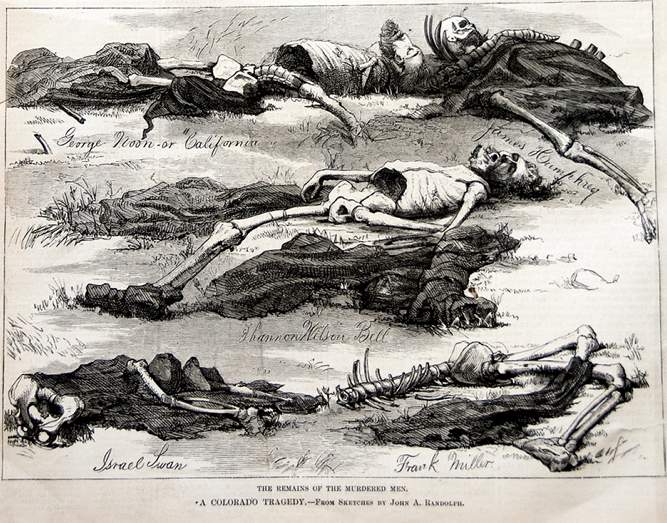Badass all-girl Americana band The Cannondolls are local favorites. This Saturday, the quirky musical group will be releasing their eclectic first studio collaboration “Crumbs EP.” (The title track “Crumbs” is available on iTunes now) Produced by Andy Rok (founding member of Flobots), the five-song EP is alt-country with hints of power-ballad pop, doo-wop, ragtime and folk. Two tracks have been described as intended “soulful murder ballads” that emerged as “power anthems emanating struggle and remorse.” The EP mixes misery with optimism and energetic melodies.
The Cannondolls are Caitlin Cannon, Kate Willyard, Alissa Wolf and Amanda Fresh. Cannon considers this EP a follow-up to her 2011 album “Caitlin Cannon and the Artillery,” when Cannon was opening for The Reverend Horton Heat and sharing stages with Lydia Loveless and Shooter Jennings. “Crumbs” marks Cannon’s debut songwriting collaboration with Willyard.
A special EP release celebration is taking place Saturday, Aug. 27, at The Rochester Courtyard and The Animas City Theatre, with support by Daphne Willis, Hailey Steele, Farmington Hill and Andy Rok and The Real Deal. We chatted with Cannon about her evolution as a songwriter and misconceptions about female-fronted groups.
What assumptions do people make about an all-female band?I think they assume we all get our periods at the same time, like nuns. Which is true. They assume there’s a lot of hair-braiding and pillow fighting and sleepovers. We’re actually focused on trying to write songs and do something with those songs. People think a girl band is helpless. We lug around all our own gear. We can lift 50-pound speakers. If someone offers to help, we usually let them; but that’s not because we’re girls, that’s because we’re not stupid.
How have you changed or grown as a songwriter since your last record? Some things are better, some things are worse. In 2010, I knew like four chords. I really didn’t know what I was doing. I had been pursuing an acting career in New York and was feeling kind of empty about it. I didn’t have the passion for it anymore. I got more interested in what I wanted to say and how I would say it, as opposed to saying all these other scripted lines. I started writing songs, and the thing about those early songs is that I wasn’t worried about how to communicate a lyric universally. Now, if a line is filler, I wouldn’t let it sit there in the song. I would never record the song unless the lyrics are perfect. If I think something is too cliché, I won’t let it be in there. So there’s something sweet about that first record – I wanted the songs to be good, but I only had the skills in songwriting and the understanding that I had at that point.
How do you feel about your songwriting now?I just wanna write one good song before I die. And I still don’t think I’ve written that song. Maybe the one I’m working on now. But I always think the one I’m working on now is The One. You gotta make it so that you can do your art, whatever that is. For me, it meant taking a step back on paper, going and getting my cosmetology license so I could live comfortably and have time to be able to write, instead of playing four-hour shows in bars every night and touring around and feeling burned out.
Tell me about the “Crumbs EP” release. When you try to release a record the way a label would do it for you, there’s a lot involved. All the fine print that goes on, getting everything registered with SoundExchange, anyone who might give you your union stuff, your ASCAP and all that. Anyone who might possibly pay you any money, including Spotify – even though it’s only like $.0001. Then the record had to be recorded, all the songs produced and fleshed out. The record had to be mixed and mastered … Once we had our physical product, we were able to start doing pre-promo … And you can start going after American Songwriter, Spin, Rolling Stone … our dream press. I sent Rolling Stone a snarky cover letter. It was just short of like, ‘F you, you’ll never read this. You don’t know what you’re missing, you a-holes.’ I sent that and didn’t hear back … I guess reverse psychology doesn’t work, not even on Rolling Stone. Then you do all of your licensing; before your songs are released, you’re more attractive to licensors, who are looking to plug songs into TV shows or films or video games. I think if you’re calling Chase Bank and you’re on hold, you’ll hear one of my old songs. I get a check for that. In the Chase Banking world, I’m getting very good exposure. And this whole time, you’re planning your EP release. There is going to be a show on August 27 – like a big celebration for everybody.
Anya Jaremko-Greenwold and David HolubThis interview has been lightly edited for space.













